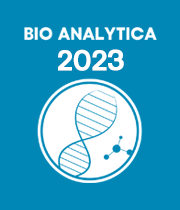Title: L-Glutamate biosensor for in vitro investigations: Application in brain extracts
Abstract:
Abnormal transmission of glutamate can cause neurological diseases such as communication dysfunction, cognitive impairments, schizophrenia, Parkinson’s disease, stroke and epilepsy. L-glutamate is known as the most common excitatory neurotransmitter in the mammalian central nervous system (CNS), thus investigations of L-glutamate release in rats and in mice could help to identificate a novel, glutamate-related pathophysiological pathways.
Glutamate content usually was assessed using microdialysis-HPLC method and only few electrochemical biosensors were designed. However, they act reliably for a sufficiently short time and their limits of detection for L-glutamate are very low and does not cover the full range of possible changes in concentrations in the study of the diseases mentioned above.
In this work, we have proposed a biosensor that is easy to prepare, calibrate, and has adequate stability. The biosensor detects current generated during the electrooxidation of hydrogen peroxide released in the L-glutamate converting to alfa-ketoglutarate reaction catalysed by glutamate oxidase. The biosensor consists of semipermeable membrane with immobilized L-glutamate oxidase (EC 1.4.3.11), working Pt electrode, isolating corps and contact zone. Firstly, the glutamate biosensor was examined in PBS in terms to investigate sensitivity, reliability and stability. In order to demonstrate the applicability of glutamate biosensor in the analysis of complex real samples, quantification of L-glutamate in bovine brain extract was performed and the accuracy of biosensor was confirmed by alternative methods. Finally, the glutamate biosensor was approved for detection of L-glutamate in bovine and mice brain extracts.


